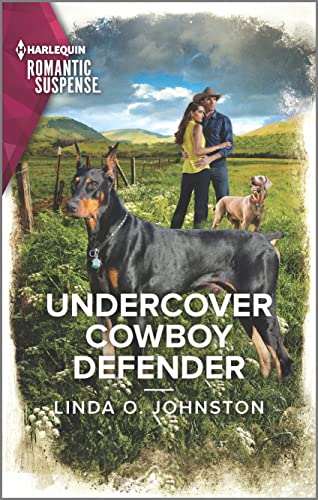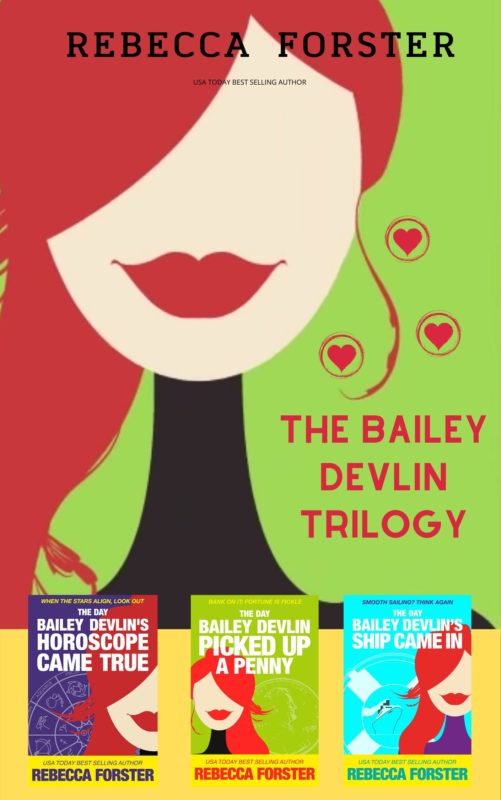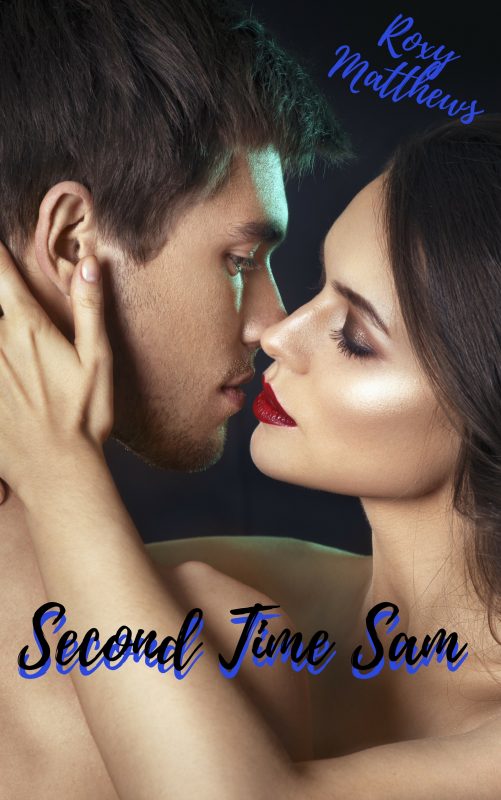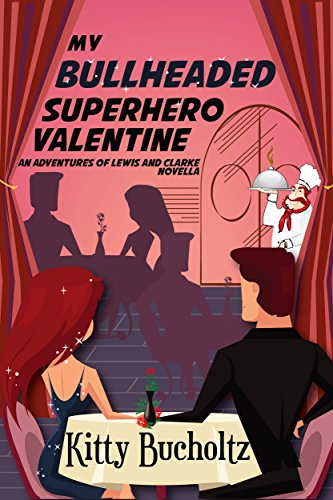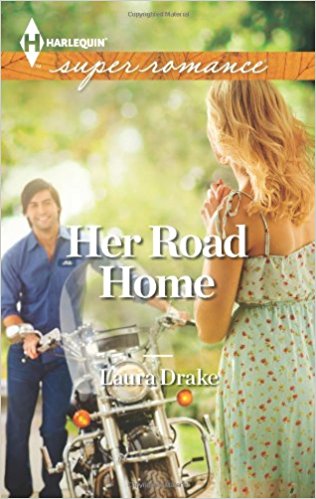A War of Words? I think not.
June 15, 2020 by Rebecca Forster in category The Write Life by Rebecca Forster tagged as Authors, Craft, inspiration, writing
Defintion of incite
to move to action : stir up : spur on : urge on.
When I first saw this image, I paused. It almost looks as if the words are at war with one another. Just typing incite these days might result in an emotional response: dismay, frustration, and even fury. My author response was quite different. As with all words, the definition of this one depends on your point of view. From where I sit to incite is not political, it defines the core of my craft.
As an avid reader, I instinctively knew what made a story great: breathless action, sympathetic characters, and a plot that could intellectually engage me for hundreds of pages. What I learned as a fledgling writer was that I couldn’t have any of these things without a well-grounded inciting incident. This is the thing, the act, that sparks a literary fire.
Today, we seem to wake up to inciting incidents every morning. They are big, bold, and world changing. For an author, an inciting incident is a means to and end. My job is to see through the chaos and write about the individuals caught up in it. I must craft and communicate insights (noun; the capacity to gain an accurate and deep understanding of a person or thing) into the human condition that has been super-charged by the inciting incident.
I just published a novella entitled The Death of Me that illustrates this part of an author’s job. In The Death of Me, the inciting incident is the brutal murder of a gentle mountain grocer. The crime inflames the hero as a lawman, hurts his heart as the dead man’s friend, and illuminates his prejudices regarding his own community. Given this foundation, I was presented with choices. I could write about the sheriff’s emotional struggle, his procedural training, or his spiritual journey. Each choice would lead me in the direction of a different genre. I chose to address all three, but with an emphasis on the procedural aspects of the sheriff’s story because I am a thriller writer.
Still, the incident of the grocery’s murder would not be as interesting without the insights into those who survived him, loved him, hated him, and those who committed the crime. As the story unfolded, I was responsible for giving the cast of characters individual points of view about death, desire, love, and most of all justice. In other words, insights into the hearts and minds of each character informed the heart and mind of the hero and the reader.
I chose the image above precisely because it is meant to explain one thing but instead led me to quite another thought. This image is about spelling and yet in the context of our world today, in the hands of author’s and artists, there is no war between these two words. One word is not pitted against the other, one word should not be mistaken for the other. Rather the the meaning of the first word should make the second meaningful.
Nothing Found
Professional Triage
April 15, 2020 by Rebecca Forster in category The Write Life by Rebecca Forster, Writing tagged as book collections, Brand, Kindle Unlimited, rebranding, rereleasing
Diagnosing What Ails Your Career
As a writer, working from home during the Coronavirus outbreak is nothing new. What is unusual is that I have not been successful in starting a new novel. Not wanting to waste time stewing about my lack of inspiration, I decided clean house. At stake is my 35 year, 39 book , traditional and indie published career. This includes:
- 12 category romances
- 9 women’s fiction novels
- 5 stand alone thrillers
- 2 novellas
- 11 series novels
Having retained my rights over the course of my career, I republished all my books when Kindle hit the market. I did not reread those books, I have not re-formatted them since the original uploads, and I have not sold more than a handful. The category romances are so far removed from my thrillers that they don’t seem to be written by the same person. That led me to ask myself this: Is my early work hurting my brand? The answer was yes. Readers made that clear with every review. Now the question became, what should I do about it? The answer to that was a bitter pill.
I have an attachment to these category romances. They are proof that I paid my professional dues, that I worked hard, and that I grew into the author I am now. I thought readers would embrace this journey, but I was wrong. I also thought I loved these books, but I do not. That was hard to admit because these early books represent years of my life, the agony and triumph of traditional publishing, and my point of view not only as an author but as a woman moving through the decades. Admitting these books are amateurish was difficult. Once I did though, it was time for professional triage. This is what I have done.
1. Immediately removed all category romances from every platform.
2. All stand-alone thrillers and series work remain viable and were not touched.
3. Analyzed all 100,000 word Women’s Fiction novels, and determined these books informed by current brand as a thriller writer. They share the elements of intricate the plots, rich characterization, and suspense.
4. I am rebranding the Women’s Fiction into The 90s Collection complete with new covers and a collection banner. I am also editing to create smoother dialogue and expository while removing politically incorrect elements. I have left the flare, fun, and romantic inclinations that were hallmarks of that decade.
I will release these novels as second editions with letters to the reader regarding what they represent in my career arc. I will include my thrillers in the ‘also by’ section of these books, and publish them in Kindle Unlimited since I do not plan to put a lot of advertising money behind them.
It was difficult to admit that I was not ready for primetime all those years ago. A sharp professional scalpel will not leave a lasting creative scar; a prescription for moving forward will make my brand healthier. Bottom line? I know that this triage has been good for my soul, and I have faith that it will be good for my career.
LOOK FOR THE 90S COLLECTION COMING SOON!


2 0 Read more
MY UNROMANTIC HEART
February 15, 2020 by Rebecca Forster in category The Write Life by Rebecca Forster tagged as Craft, love, Love Inspired, romance genre, romance', romantic comedy, thrillers, writing process, Writing romance
By the time you read this it will be the day after Valentine’s Day, and I spent yesterday agonizing about what to write.
This angst over Valentine’s Day and romance is not unfounded. My first book was a romance. In Passion’s Defense was about a defense lawyer falling in love with a prosecutor during a gruesome trial. That should have been my first clue that perhaps mayhem rather than meet ups was my cup of tea. But I was slow on the uptake, and I wrote eight category romances. I think they are pretty darn good and they got better with each one. I wrote my heart out for Harlequin but I couldn’t seem to color in the lines, so I started writing women’s fiction. The editorial freedom, the more intricate plot lines, and the emphasis on plot rather than relationship helped me thrive. Dreams, Seasons, Vanities were just some of my titles. I wrote a lot of women’s fiction, but still I hadn’t hit my comfort zone as a writer. Then two things happened that sealed my fate.
First, the incredible RWA bookseller—Michelle Thorne—delicately informed me that my idea of romance was the hero chucking the heroine on the arm and giving her a smile. She was right. I was not a sexy writer in the years when other authors were pushing the envelope. My editor at Kensington was more direct. He said ‘You have to stop killing people before they get in bed!’. In essence he fired me from romance. I was devastated. Later I realized this was the silver lining in my very dark cloud.
When I started writing thrillers I found my passion and isn’t passion what love is all about? Still, without the learning curve of the romance genre, without the editors and readers, I wouldn’t have had the confidence to break up with women’s fiction as it was defined all those years ago and move on to my literary partner for life.
That doesn’t mean I left romance behind completely. Every book I write is based on relationships, but the emphasis of stories is little different from the classic romance novel. And then there’s my mom. One day she asked if I could write a book-without-bodies. I wrote three. On my mother’s ninetieth birthday, I presented her with a trilogy of sweet, romantic comedies: The Day Bailey Devlin’s Horoscope Came True, The Day Bailey Devlin Picked Up a Penny and the Day Bailey Devlin’s Ship Came in. These books encompassed every thing I love about romance: humor, honesty, confusion, honor, and affection for not just one man but all the men in Bailey’s life. Young or old, they be a lover or father or friend, it was all about love. I will always be most proud of, be in love with, the Bailey Devlin Trilogy because it reflects my definition of romance.
Today I put those three books in a boxed set and I hope when a reader finishes the stories, her (his) heart will be fuller, there might be a tear in her eye, she will have laughed out loud and then will turn around and pass all that feeling on to someone she loves.
Happy Belated Valentine’s Day.
0 0 Read moreI HAVE A FRIEND WHO WANTS TO WRITE. . .
January 15, 2020 by Rebecca Forster in category The Write Life by Rebecca Forster, Writing tagged as etiquette, Family, mentor, mentoring, new author, writing
So my brother called the other day (actually 2 days into the new year) and said: I have a friend and she wants to write a book. Can you just talk to her and tell her everything you know? I already gave her your phone number.
I have five brothers and sisters, a mom and any number of cousins, in-laws and friends who have each made this request on various occasions. I am always happy to help new writers, but I’m not crazy about my phone number passed around. First, I was probably the only teenage girl in the world who hated talking on the phone and that hasn’t changed in the last 50 years. More importantly it is impossible to distill 30 plus years of writing and publishing experience into a quick conversation and have it benefit a new writer.
The good news is that there is email. Email allows me to put information into a manageable format, provide links to appropriate sites that will help the writer, and allow that person to save the conversation for future reference. Here are some thoughts for the author willing to pay it forward, the writer looking for help, and the brothers and sisters who love to share the author in the family.
THE REFERER: Ask (preferably not with the new writer standing in front of you) if the author has time to help and how they would like to be contacted. Always allow the author to beg off even though most won’t. Writing is a time consuming business and multiple requests can feel overwhelming especially when an author is in the middle of a big project.
THE REFEREE: Be prepared. This tells the author that you are willing to work hard. Preparation should include a basic understanding of what you want to write (genre, form, etc.) and your goal (traditional or indie publishing, to create a career, expand a hobby). Have a short list of specific questions. Don’t try to cover the entire industry in one conversation.
Be respectful. An established author has built her business through trial and error, hard work, rejection and acceptance. Often she has paid for classes and conferences. Respect her hard work, commitment, and risk.
THE AUTHOR IN THE MIDDLE: Be gracious and as effective as you can be. A new writer will be nervous speaking to an established author, so put her at her ease. Then remember that there is a fine line between useful information and too much information. Usually it is possible to tell how much the Referee can absorb from their first contact. If a new writer can’t articulate whether they want to be an indie or a traditionally published author start with the basics, direct this writer to blogs on publishing and offer recommendations for coaches and writing classes. The nuances of the industry would be lost on a true newbie.
Set parameters. I am always grateful when a new author asks if it’s okay to check back in. I love the request as much as I love to hear the progress. As new writers become grounded, their questions often help me rethink my work as much as it helps them move forward.

Don’t miss Lost Witness, Rebecca’s newest addition to The Witness Series, a Josie Bates Thriller.
Join over 2 million readers of The Witness Series!
0 0 Read moreThe Perfect (writing) Gift
December 15, 2019 by Rebecca Forster in category The Write Life by Rebecca Forster tagged as Craft, Family, strategy
I was speaking to a new writer the other day, and I was impressed by her clarity. She knew enough to understand the life of a writer is tough, but she was willing to work hard. What really impressed me, though, was when she asked if she could share what I told her with her husband because he was her biggest fan.
I told her that put her ten steps ahead of most people since family support is critical for an artist. No message board, chat room or critique group can truly duplicate a family’s faith, their unflagging support, and, if a writer is very lucky, loving honesty. I know because I was showered with that kind of support from day one.
While I may have started writing because of a crazy dare, my first stab at writing was pretty traditional. By that I mean it was awful. I threw away the pages (there were no computers then). One day when I was cleaning I found that sad little manuscript under the sofa. The story I considered idiotic, my husband believed was incredible merely because I had created it. That gesture – pulling the pages out of the trash and hiding them to preserve my ‘brilliance’ – was enough to make me sit down and try again.
When that book sold, I dared to dream that I had actually started on a career path. It wasn’t an easy one. There were challenges and frustrations, joys and excruciating anticipation. For every two steps forward there was one step back, and all of it was shared with family. In return, family gave back encouragement, sympathetic ears and selfless celebration when it was called for. Often my husband did the household chores after his own long day at work so I could write in the evening. When I wrote during the day I kept my two toddlers quiet for a while by putting an old typewriter on the floor, threading it with paper, and telling them to write their book while I wrote mine.
Books were sold, books were rejected, books were started and never finished. My family endured my tears and meltdowns when things looked bleak. But when something good happened the celebration was a family affair even if it was just a trip to McDonalds for McNuggets in those early days. It was my husband who found the Kindle opportunity before I even heard of it. One of my children is a writer now and we spend long hours in the kitchen talking craft. My other son works in Hollywood and brings a whole knew point of view to my storytelling.
Over the years, over the course of penning 39 books, nothing has changed in our household. My family are my biggest fans (even if my husband can’t remember the titles of my books). I am so grateful for every word they’ve ever spoken, every hug I’ve received, and every chore they’ve undertaken in service to my work.
Throughout my thirty-year career I also learned a very important lesson: to return the favor. Whether a person writes books, don judge’s robes, manages an office, waits tables, pilots an airplane, or is a cop on the beat; no matter what we are in the ‘real world ‘the best gift we can give and receive is the utter, undying, unshakeable faith in those we love.
No matter who you are, what you do, or what you dream give the gift of goodwill to someone you love because it will come back to you ten fold.
Merry Xmas.

Don’t miss Rebecca’s new release, Lost Witness.
Join over 2 million readers of The Witness Series and never miss a Josie Bates Thriller.
0 0 Read moreAffiliate Links
A Slice of Orange is an affiliate with some of the booksellers listed on this website, including Barnes & Nobel, Books A Million, iBooks, Kobo, and Smashwords. This means A Slice of Orange may earn a small advertising fee from sales made through the links used on this website. There are reminders of these affiliate links on the pages for individual books.
Search A Slice of Orange
Find a Column
Archives
Featured Books
THE BAILEY DEVLIN TRILOGY: BOOK 1-3 (The Bailey Devlin Series)
Bailey Devlin believes in fate. . .and luck. . .and fortune telling.
More info →MY BULLHEADED SUPERHERO VALENTINE
Maybe just one night out won’t hurt.
More info →Newsletter
Contributing Authors
Search A Slice of Orange
Find a Column
Archives
Authors in the Bookstore
- A. E. Decker
- A. J. Scudiere
- A.J. Sidransky
- Abby Collette
- Alanna Lucus
- Albert Marrin
- Alice Duncan
- Alina K. Field
- Alison Green Myers
- Andi Lawrencovna
- Andrew C Raiford
- Angela Pryce
- Aviva Vaughn
- Barbara Ankrum
- Bethlehem Writers Group, LLC
- Carol L. Wright
- Celeste Barclay
- Christina Alexandra
- Christopher D. Ochs
- Claire Davon
- Claire Naden
- Courtnee Turner Hoyle
- Courtney Annicchiarico
- D. Lieber
- Daniel V. Meier Jr.
- Debra Dixon
- Debra H. Goldstein
- Debra Holland
- Dee Ann Palmer
- Denise M. Colby
- Diane Benefiel
- Diane Sismour
- Dianna Sinovic
- DT Krippene
- E.B. Dawson
- Emilie Dallaire
- Emily Brightwell
- Emily PW Murphy
- Fae Rowen
- Faith L. Justice
- Frances Amati
- Geralyn Corcillo
- Glynnis Campbell
- Greg Jolley
- H. O. Charles
- Jaclyn Roché
- Jacqueline Diamond
- Janet Lynn and Will Zeilinger
- Jaya Mehta
- Jeff Baird
- Jenna Barwin
- Jenne Kern
- Jennifer D. Bokal
- Jennifer Lyon
- Jerome W. McFadden
- Jill Piscitello
- Jina Bacarr
- Jo A. Hiestand
- Jodi Bogert
- Jolina Petersheim
- Jonathan Maberry
- Joy Allyson
- Judy Duarte
- Justin Murphy
- Justine Davis
- Kat Martin
- Kidd Wadsworth
- Kitty Bucholtz
- Kristy Tate
- Larry Deibert
- Larry Hamilton
- Laura Drake
- Laurie Stevens
- Leslie Knowles
- Li-Ying Lundquist
- Linda Carroll-Bradd
- Linda Lappin
- Linda McLaughlin
- Linda O. Johnston
- Lisa Preston
- Lolo Paige
- Loran Holt
- Lynette M. Burrows
- Lyssa Kay Adams
- Madeline Ash
- Margarita Engle
- Marguerite Quantaine
- Marianne H. Donley
- Mary Castillo
- Maureen Klovers
- Megan Haskell
- Melanie Waterbury
- Melisa Rivero
- Melissa Chambers
- Melodie Winawer
- Meriam Wilhelm
- Mikel J. Wilson
- Mindy Neff
- Monica McCabe
- Nancy Brashear
- Neetu Malik
- Nikki Prince
- Once Upon Anthologies
- Paula Gail Benson
- Penny Reid
- Peter Barbour
- Priscilla Oliveras
- R. H. Kohno
- Rachel Hailey
- Ralph Hieb
- Ramcy Diek
- Ransom Stephens
- Rebecca Forster
- Renae Wrich
- Roxy Matthews
- Ryder Hunte Clancy
- Sally Paradysz
- Sheila Colón-Bagley
- Simone de Muñoz
- Sophie Barnes
- Susan Kaye Quinn
- Susan Lynn Meyer
- Susan Squires
- T. D. Fox
- Tara C. Allred
- Tara Lain
- Tari Lynn Jewett
- Terri Osburn
- Tracy Reed
- Vera Jane Cook
- Vicki Crum
- Writing Something Romantic
Affiliate Links
A Slice of Orange is an affiliate with some of the booksellers listed on this website, including Barnes & Nobel, Books A Million, iBooks, Kobo, and Smashwords. This means A Slice of Orange may earn a small advertising fee from sales made through the links used on this website. There are reminders of these affiliate links on the pages for individual books.
















